📖 Introduction to Gluten Free Living

Gluten-free living has become more than just a dietary trend. For many, it’s a necessity tied to health, comfort, and well-being. Whether due to celiac disease, gluten intolerance, or personal preference, going gluten free means a complete lifestyle change—from the way one shops for groceries to how they bake favorite treats.
Adopting a gluten free lifestyle requires understanding what gluten is, identifying where it hides, and learning to replace it in a balanced, nutritious way. This guide walks you through every essential aspect of gluten free living, from pantry staples to mouthwatering recipes.
❓ What Does “Gluten Free” Mean?
Gluten is a structural protein found in wheat, rye, barley, and their derivatives. A gluten free product must contain less than 20 parts per million (ppm) of gluten, according to international standards. This small amount is considered safe for people with celiac disease or gluten intolerance.
Common gluten-containing grains:
| Grain | Contains Gluten? | Gluten Free Alternative |
|---|---|---|
| Wheat | Yes | Rice, Sorghum, Buckwheat |
| Barley | Yes | Millet, Quinoa |
| Rye | Yes | Amaranth, Teff |
| Spelt/Kamut | Yes | Oats (certified GF) |
👥 Who Should Eat Gluten Free?
A gluten free diet is essential for:
- People with Celiac Disease: An autoimmune condition where gluten damages the small intestine.
- People with Non-Celiac Gluten Sensitivity: Experience symptoms similar to celiac without intestinal damage.
- People with Wheat Allergy: Require a wheat-free diet, which often overlaps with gluten free.
- Certain Medical Conditions: Some autoimmune disorders, like Hashimoto’s, benefit from reduced gluten intake.
It’s important to consult with a healthcare provider before making long-term dietary changes.
⚖️ Benefits and Challenges of a Gluten Free Diet
✅ Benefits:
- Improved digestion in sensitive individuals
- Increased awareness of whole foods and ingredients
- Reduction in inflammation for some autoimmune conditions
⚠️ Challenges:
- Limited availability of baked goods and snacks
- Risk of nutrient deficiencies (fiber, B vitamins)
- Higher grocery costs
- Risk of cross-contamination
🥄 Essential Ingredients for Gluten Free Baking
Baking without gluten requires creativity and the right ingredients to mimic the structure and elasticity gluten provides.
Key Gluten Free Ingredients:
| Ingredient | Purpose | Example |
|---|---|---|
| Gluten free flour | Base structure | Rice flour, millet flour |
| Binders | Replace gluten’s elasticity | Xanthan gum, psyllium husk |
| Leaveners | Aid rise | Baking powder, baking soda |
| Moisture agents | Prevent dryness | Applesauce, yogurt (halal) |
🌾 Common Gluten Free Flours and Their Uses
| Flour Type | Texture/Flavor | Best Uses |
|---|---|---|
| Rice Flour | Light, neutral | Cakes, cookies, batters |
| Almond Flour | Rich, nutty | Muffins, cakes, crusts |
| Sorghum Flour | Earthy, mild | Breads, pancakes |
| Tapioca Starch | Chewy, light | Binders, soft texture in cakes |
| Chickpea Flour | Dense, savory | Crepes, fritters, thickeners |
Always blend multiple flours for best results unless a recipe specifies otherwise.
🔗 Binders and Thickeners (Xanthan Gum, Psyllium Husk, etc.)
Gluten’s elasticity is crucial in baking. Here’s how to replicate it:
| Binder | Function | Usage Tips |
|---|---|---|
| Xanthan Gum | Provides stretch and structure | Use sparingly: 1 tsp per cup of flour |
| Psyllium Husk | Adds chew and traps moisture | Best for breads and sourdoughs |
| Ground Flaxseed | Binds and adds fiber | Great egg replacer in some recipes |
| Chia Seeds | Gel-forming for binding | Needs soaking in water before use |
🧁 Tips for Successful Gluten Free Baking
- Use a digital scale for precision.
- Don’t skip the binders—structure will suffer.
- Rest your batter for 20–30 minutes to hydrate flours.
- Use room temperature ingredients for better consistency.
- Test recipes more than once—adjust based on results.
🍪 Gluten Free Biscuits Recipe
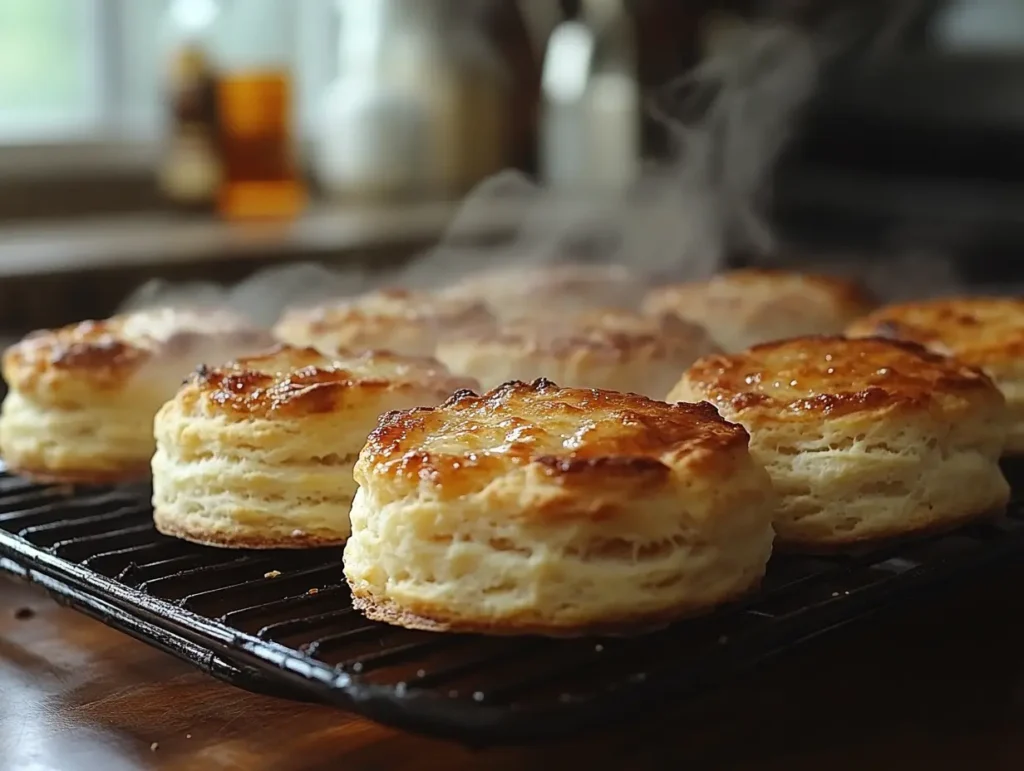
📝 Ingredients and Substitutes
| Ingredient | Quantity | Substitute (if needed) |
|---|---|---|
| Gluten free flour blend | 2 cups | Almond + rice flour mix |
| Baking powder | 1 tbsp | GF verified |
| Salt | 1/2 tsp | |
| Unsalted butter | 1/2 cup | Coconut oil for dairy-free |
| Milk | 3/4 cup | Almond or oat milk |
👨🍳 Step-by-Step Preparation
- Preheat oven to 220°C (425°F).
- Mix dry ingredients in a bowl.
- Cut butter into dry mix until crumbly.
- Add milk and stir until dough forms.
- Roll out and cut into rounds.
- Bake for 12–15 minutes until golden.
🧊 Storage Tips and Variations
- Store: In airtight container for 3 days or freeze for 2 months.
- Additions: Chopped chives, garlic powder, or grated halal cheese.
🍫 Gluten Free Chocolate Cake Recipe
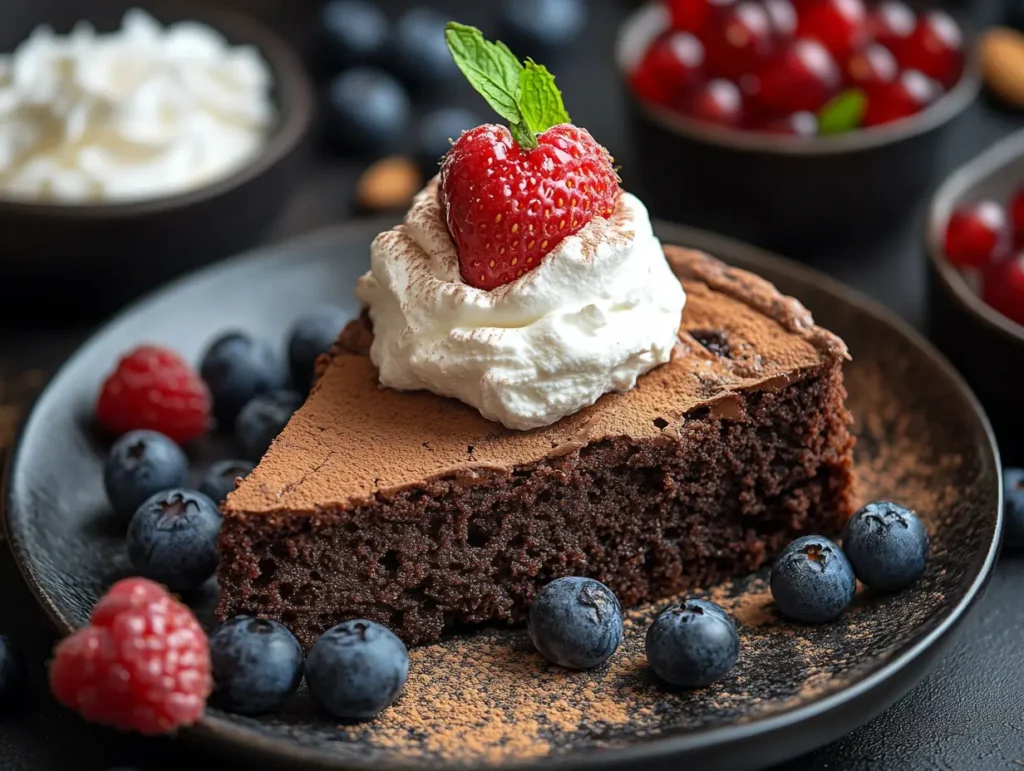
🌾 Choosing the Right Flour Blend
A mix of rice flour, almond flour, and tapioca starch works well for moist chocolate cakes.
💧 Moisture-Retaining Ingredients
| Ingredient | Role |
|---|---|
| Applesauce | Adds moisture, replaces oil |
| Coconut yogurt | Keeps texture light |
| Brewed coffee (halal, caffeine-free) | Enhances chocolate flavor |
🍰 Frosting Options and Serving Suggestions
- Halal Chocolate Ganache: Melted halal dark chocolate + coconut cream.
- Coconut Whipped Cream: Light, dairy-free topping.
- Serve with fresh berries or a dusting of cocoa powder.
🍋 Gluten Free Lemon Bars Recipe
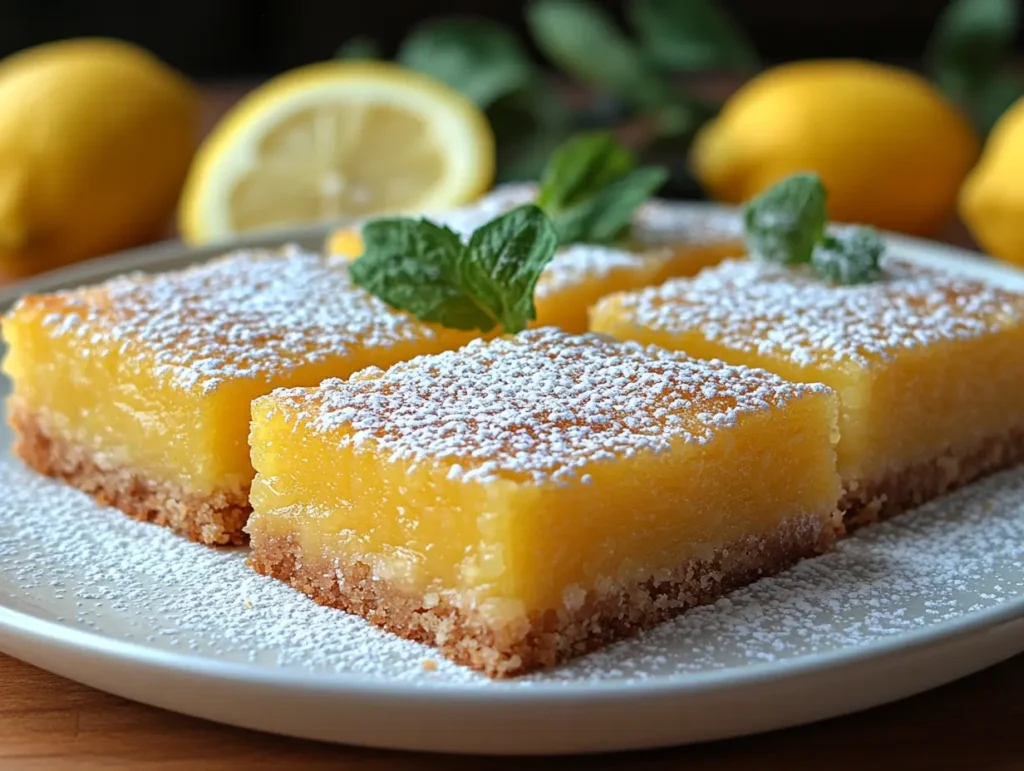
🧈 Creating a Buttery Gluten Free Shortbread Crust
| Ingredient | Quantity |
|---|---|
| GF flour blend | 1 ½ cups |
| Halal unsalted butter | 1/2 cup |
| Powdered sugar | 1/3 cup |
| Salt | Pinch |
Press into a pan, bake at 180°C (350°F) for 15 minutes.
🍋 Lemon Filling with the Perfect Tang
Whisk together:
- 3 large halal eggs
- 1 cup sugar
- 1/2 cup fresh lemon juice
- 2 tbsp GF flour
Pour over hot crust, bake for 20 more minutes.
✂️ Cutting and Storing Tips
- Cool fully before slicing.
- Dust with halal powdered sugar.
- Store refrigerated for 4–5 days.
🥞 Gluten Free Crepe Recipe
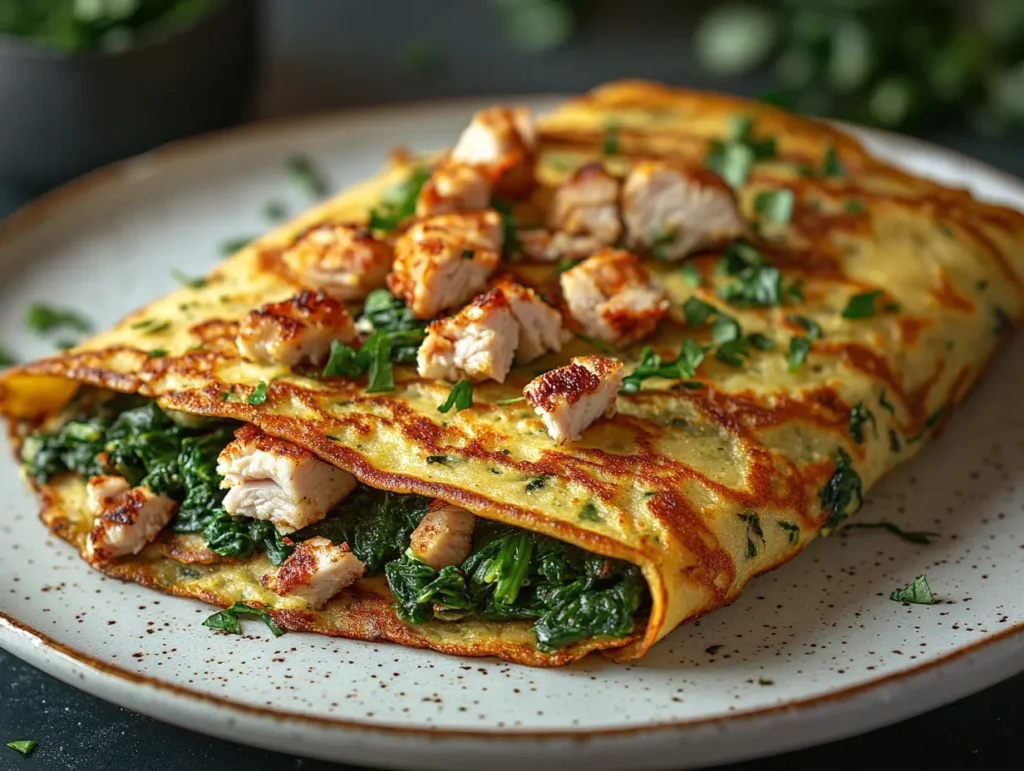
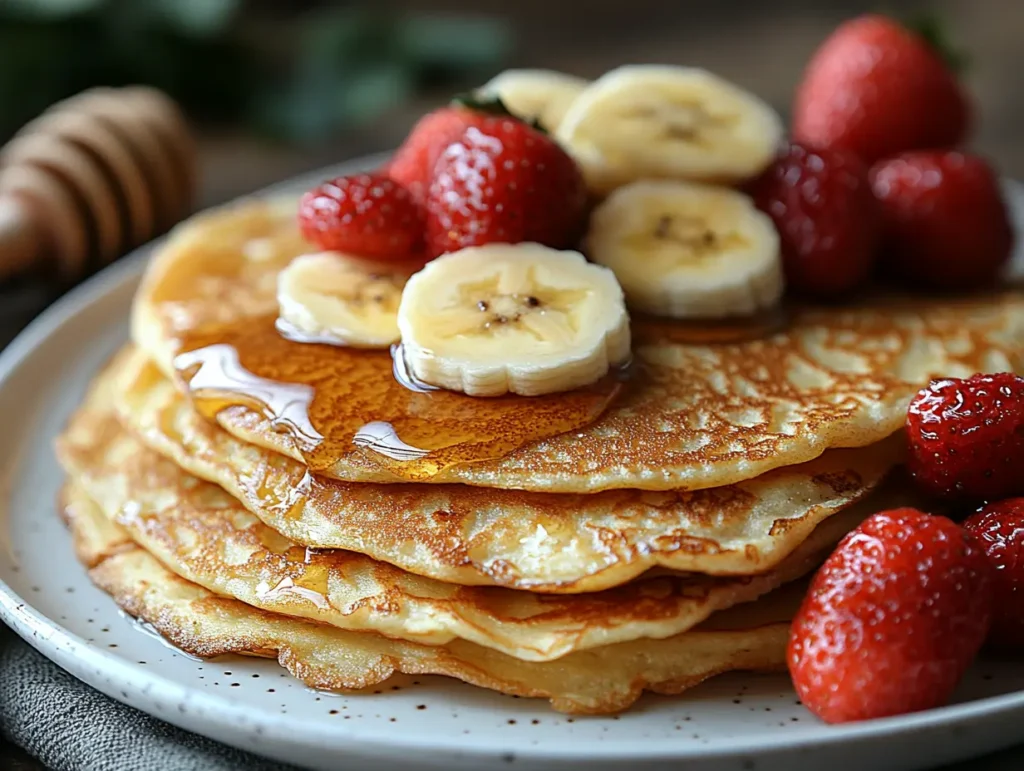
🌾 Best Flours for Crepes
- Tapioca starch and rice flour for flexibility.
- Add chickpea flour for savory versions.
🍯 Sweet vs. Savory Fillings
| Type | Fillings |
|---|---|
| Sweet | Honey, banana, dates, coconut cream |
| Savory | Halal turkey slices, spinach, hummus |
🔥 Cooking Techniques for Thin and Flexible Crepes
- Use a non-stick pan on medium heat.
- Let batter rest for 30 minutes before cooking.
- Pour and swirl quickly for even coverage.
🍞 Gluten Free Sourdough Recipe
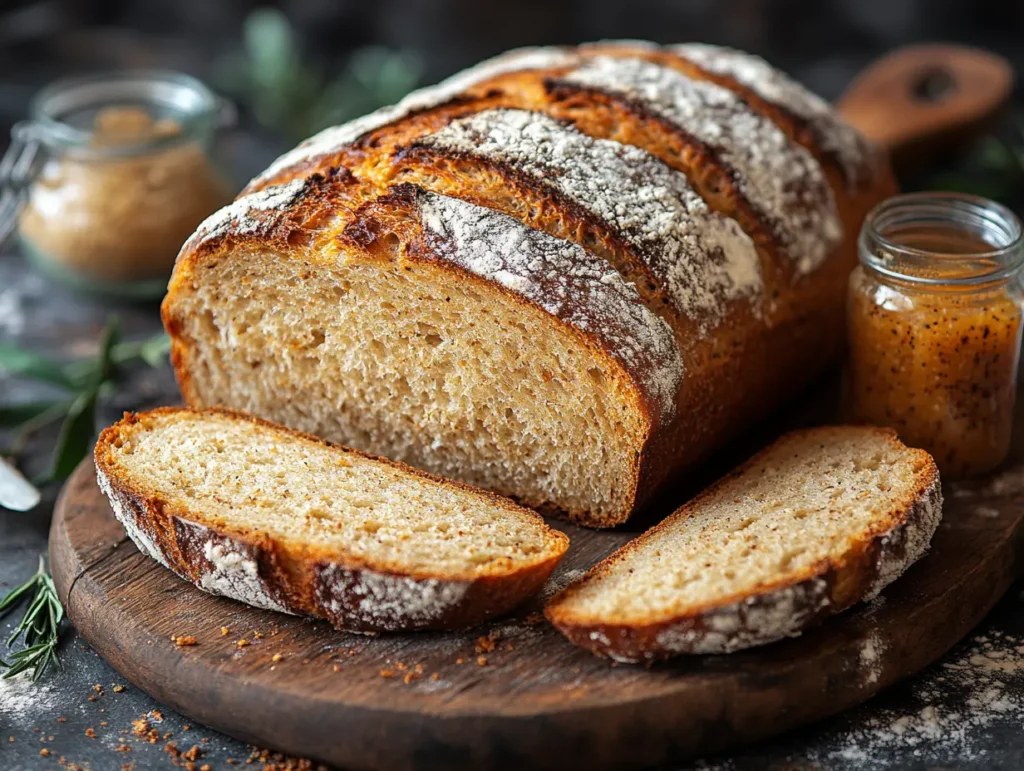
🔬 How Gluten Free Sourdough Differs
- Uses wild fermentation like traditional sourdough.
- Needs alternative flours like sorghum and millet.
- Doesn’t rise as much but offers great flavor and digestibility.
🧪 Creating and Maintaining a Gluten Free Starter
- Mix equal parts GF flour and water.
- Feed daily with fresh flour/water.
- Store at room temperature, then refrigerate.
🍞 Baking and Storage Tips
- Bake in a Dutch oven for crusty texture.
- Cool completely before slicing.
- Freeze slices for easy use.
🏡 Lifestyle Tips for Going Gluten Free
🔍 Reading Labels & Identifying Hidden Gluten
- Look out for “modified food starch,” “natural flavors,” and “malt”.
- Use certified halal and gluten free labeled products.
🍽️ Eating Out Safely
- Call ahead and ask about GF options.
- Choose cuisines with naturally gluten free staples (e.g., Middle Eastern, Indian).
- Avoid fried items (shared oil risk).
🛒 Stocking a Gluten Free Kitchen
| Must-Have Item | Purpose |
|---|---|
| Certified GF flours | Baking and cooking |
| GF soy sauce (tamari) | Flavoring |
| Whole grains (quinoa) | Side dishes, salads |
| Halal broth cubes | Cooking base |
📱 Apps and Tools for Gluten Free Living
Living gluten free is easier than ever thanks to mobile apps and digital tools designed to support your daily routine, whether you’re shopping, cooking, or dining out.
🔍 1. Yuka (France & International)
Function: Food scanner
➡️ Scans product ingredients and additives
➡️ Identifies gluten and potential allergens
✅ Bonus: Also filters halal and organic products
🧾 2. ScanUp
Function: Nutrition scanner with custom filters
➡️ Create a gluten free profile
➡️ Recommends certified GF alternatives available in stores
🍽️ 3. Find Me Gluten Free (English only)
Function: Restaurant directory for gluten free dining
➡️ Community-reviewed GF-friendly locations
➡️ Great for travel or local dining
📍 Coverage includes major global cities
🛒 4. Gluten Free Scanner (iOS/Android)
Function: Barcode reader for gluten detection
➡️ Gluten-focused product database
➡️ Flags unsafe additives and ingredients
📚 5. Cookpad / Marmiton (with filters)
Function: User-submitted recipe platforms
➡️ Search recipes using “gluten free” filters
➡️ Community-vetted ideas, often with halal and vegetarian options
📦 6. MyFitnessPal (with gluten free profile)
Function: Nutrition tracker and food diary
➡️ Monitor nutrient intake to avoid deficiencies
➡️ Supports whole food tracking for balanced gluten free eating
📌 Pro Tips for Using These Apps:
- Enable allergen alerts in profile settings
- Check the last update date of product databases
- Always cross-check results with official gluten free certifications on packaging
❓ Frequently Asked Questions About Gluten Free Diets
✅ Can You Gain Weight on a Gluten Free Diet?
Yes. Many gluten free products use refined flours (like white rice or potato starch), which can spike blood sugar and promote fat storage if consumed in excess. Additionally, some people overcompensate by eating more snacks or desserts labeled “gluten free” assuming they are healthier.
📌 Advice:
- Prioritize fiber-rich grains like quinoa, millet, or buckwheat.
- Cook more at home to control ingredients.
- Read nutrition labels—even on certified GF products.
✅ How to Manage Cross-Contamination?
Cross-contamination is a serious issue, especially for those with celiac disease. Even small traces of gluten can trigger symptoms.
Key strategies:
- Use separate toasters, cutting boards, and utensils.
- Store gluten free flours in sealed containers away from wheat-based products.
- Clean shared kitchen surfaces before GF cooking.
- Label condiments (like butter, jam) if double-dipping is a risk.
🧼 Bonus Tip: Use color-coded tools (e.g., green = gluten free) in shared kitchens.
✅ What Foods Are Naturally Gluten Free?
Many whole foods are gluten free by nature and should be the foundation of a balanced GF diet.
Examples include:
- Fruits and vegetables
- Legumes (chickpeas, lentils, beans)
- Eggs, poultry, fish, and halal-certified meats
- Whole grains like quinoa, amaranth, millet, buckwheat
- Nuts and seeds
- Dairy (check labels for additives)
⛔ Watch out: Some frozen or pre-seasoned versions may contain hidden gluten.
✅ Are Oats Really Gluten Free?
Only if certified. While oats don’t contain gluten naturally, they’re often contaminated during processing. Certified gluten free oats are tested to ensure they fall below 20 ppm gluten.
✔ Use oats labeled “certified gluten free” for safe consumption.
✅ How Long Does It Take to Feel Better After Going Gluten Free?
Most people with celiac disease or sensitivity feel some relief within a few weeks, but full intestinal healing can take 6 months to 2 years depending on severity and age.
🕒 Patience is key—track your symptoms and work with a healthcare provider.
📚 Conclusion and Resources
✅ Summary of Key Points
- Gluten free living is essential for people with celiac disease, gluten sensitivity, or wheat allergy—and can be beneficial for others with autoimmune or digestive concerns.
- Successful gluten free baking requires the right flour blends, binders, and adapted techniques.
- Always read ingredient labels to identify hidden gluten sources and cross-contamination risks.
- Planning ahead—especially when eating out—greatly improves safety and enjoyment.
- Creativity, education, and community support make gluten free eating both delicious and sustainable.
📚 Recommended Cookbooks and Blogs
- Gluten-Free on a Shoestring by Nicole Hunn – Budget-friendly and family-oriented recipes.
- The How Can It Be Gluten-Free Cookbook by America’s Test Kitchen – Research-driven baking and cooking tips.
- Cannelle et Vanille by Aran Goyoaga – Elegant gluten free recipes, mostly dairy-free.
- Blogs: Minimalist Baker, Gluten-Free Palate, Au Fil du Sans Gluten (French)
👥 Community Support and Forums
- Reddit: r/glutenfree
- Facebook Groups: “Gluten-free lifestyle, recipes, & advice”, “GF Kids & Parents”
- Celiac.org forums – Research-based advice and community
- AFDIAG (France) – Association Française Des Intolérants Au Gluten
- Meetup.com – Search for local GF meetups and support groups
🚀 What to Do Next
🩺 Consult a dietitian to ensure nutritional balance while following a gluten free diet.
🛒 Download a gluten free grocery checklist and stock up on essential pantry items.
🍽️ Try one gluten free recipe from this guide—like the biscuits or lemon bars.
🤝 Join a support group or follow a trusted GF blog for weekly inspiration.

